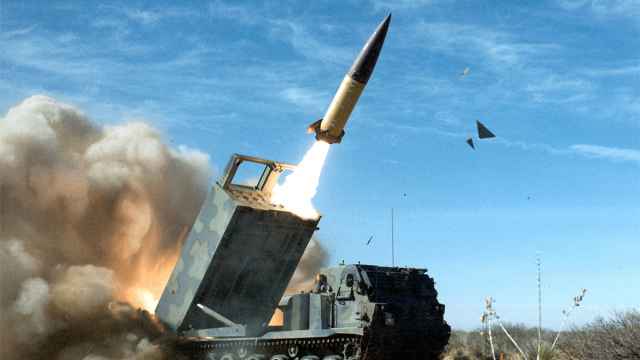Urals crude oil traded at above $100 a barrel for the second day in a row Thursday for the first time since the economic recovery boosted demand.
Prices lurched after anti-government riots in Egypt put uninterrupted tanker traffic through the Suez Canal at risk.
Another, more fundamental reason for the price surge was the swelling global money supply, as the U.S. Federal Reserve executed its plan to pump $1.2 trillion into the marketplace — a measure also known as quantitative easing.
A barrel of Russia's main blend of crude sold for $101.11 on Thursday, climbing over the psychologically important barrier for the first time since it dipped below the barrier in September 2008.
As the unrest subsides in Egypt, the rest of the Middle East and North Africa, prices will slide down below the three-digit mark in the near future, leaving demand unaffected, said Rustam Kazharov, a spokesman for Rosneft, the largest domestic oil producer.
Vadim Mitroshin, an Otkritie analyst, also said oil prices may have peaked, fueled by the riots.
"The reserves of oil and oil products are good," he said. "The market continues to be well supplied and doesn't feel any shortages of oil."
Others were more bullish on the price prospects.
"The excess of supply isn't as big as presumed before," said Gennady Sukhanov, chief analyst at TKB BNP Paribas Investment Partners.
He added that demand would likely overtake supply in less than five years, even though Saudi Arabia has significant potential to ramp up output.
"Saudi Arabia will not have enough capacity," he said, predicting that oil would remain as expensive.
Oil prices won't retreat much even if and when political unrest in oil-producing North Africa and the Middle East subsides, he said.
Russia, which based its budget for this year on $75 a barrel oil, could end the year with a "close-to-zero" deficit if the price holds, he said.
Finance Minister Alexei Kudrin said earlier this month that high oil prices could bring the currently anticipated deficit of 3.6 percent of gross domestic product to below 3 percent.
That could prompt the government to reduce foreign and domestic borrowing, Sukhanov said.
Russian oil producing companies may increase their investment, he said, but the key trigger for any additional spending would be a cut of the export duty — if the recent Energy Ministry proposals gain the Cabinet's approval.
Oil companies use about half of their revenues to cover this and other taxes.
But expensive oil threatens to undermine the stability of demand because it puts pressure on the economies that are emerging from the crisis.
After various international oil blends began breaching the $100 per barrel threshold, the International Energy Agency's chief economist Fatih Birol said earlier this month that the trend endangers economic recovery.
A Message from The Moscow Times:
Dear readers,
We are facing unprecedented challenges. Russia's Prosecutor General's Office has designated The Moscow Times as an "undesirable" organization, criminalizing our work and putting our staff at risk of prosecution. This follows our earlier unjust labeling as a "foreign agent."
These actions are direct attempts to silence independent journalism in Russia. The authorities claim our work "discredits the decisions of the Russian leadership." We see things differently: we strive to provide accurate, unbiased reporting on Russia.
We, the journalists of The Moscow Times, refuse to be silenced. But to continue our work, we need your help.
Your support, no matter how small, makes a world of difference. If you can, please support us monthly starting from just $2. It's quick to set up, and every contribution makes a significant impact.
By supporting The Moscow Times, you're defending open, independent journalism in the face of repression. Thank you for standing with us.
Remind me later.





